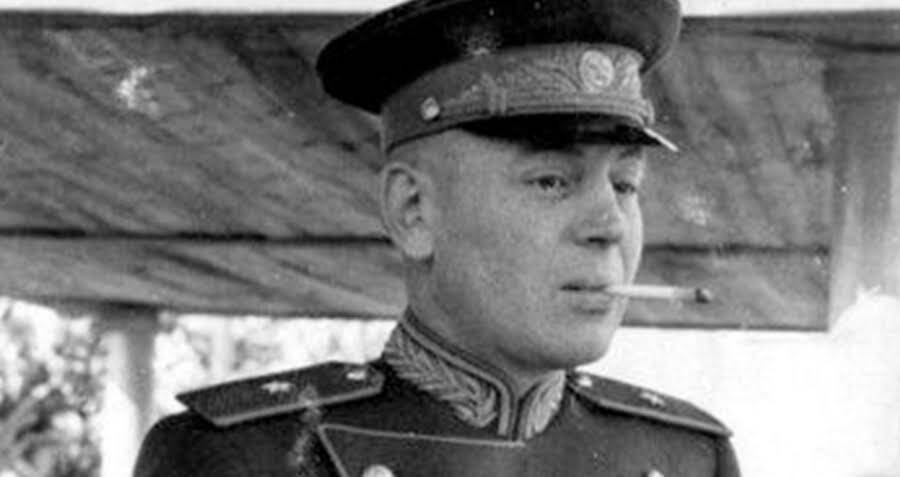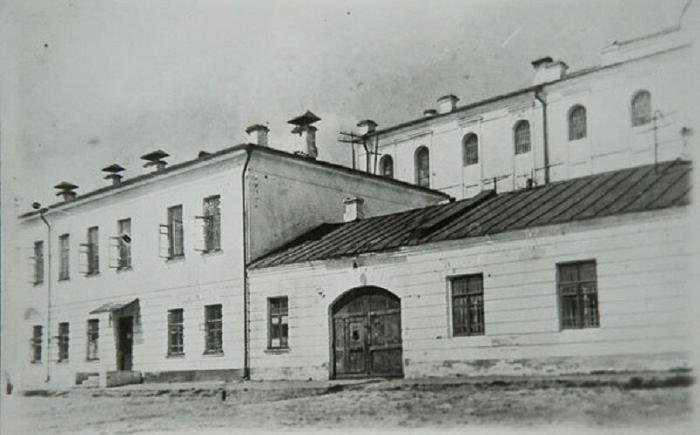Vasily, Son of Stalin
Central Moscow— April 28th, 1953. The first knock came at 2 am. Lieutenant-General Vasily I. Stalin, filled to the brim with vodka and fury, opened his apartment door to find Soviet security officers holding up a detention order. Seven weeks earlier his father, Joseph Stalin, had died and the Politburo, no longer in his iron grip, decided the dictator’s son was too volatile to leave at liberty.
By dawn, the youngest commander in Soviet air-force history was on a prison train headed east, his name already struck from unit roles.
Vasily Iosifovich Stalin Dzhugashvili
Born in 1921, Vasily grew up cloaked in privilege— chauffeurs, ponies, evenings at the Bolshoi— but he was locked, as all members of his family were, inside a cage of expectations. At seventeen, he wrangled a flight school posting; by twenty-two he was flying Yak-9s over Kursk and wearing a Hero of the Soviet Union star. His passions were speed and sport. He built the VVS Moscow hockey club, hand-picked pilots for reckless air displays, and roared around the capital in a Packard sedan. But the death of his mother Nadezhda in 1952 and his powerful father’s propensity for icy discipline left him permanently brittle. A military transport carrying his entire hockey squad crashed in Sverdlovsk on January 5th 1950. Vasily medicated with brandy and acted erratically. Colonels learned to duck when he appeared at barracks inspections with a hunting rifle and a hangover.
Joseph Stalin’s staff found him semi-conscious in his bedroom on March 1st 1953. He died on March 5th, apparently from a cerebral hemorrhage. A succession struggle pitted First Deputy Premier Lavrenty Beria, acting Premier Georgy Malenkov, party secretary Nikita Khrushchev and others against one another. They agreed on almost nothing— except the need to neutralize Stalin’s unpredictable heir. Memoirs released after 1991 show that Khrushchev considered Vasily “a lit fuse near a powder barrel,” while Malenkov feared the young general might inspire die-hard Stalinists in the army. Alarmingly, eyewitnesses recalled during the funeral Vasily had exclaimed, “They’ve killed my father, the bastards!” referred to the leadership. Beria saw a simpler advantage: by framing Vasily as a drunk who endangered state secrets (he had indeed gotten soused with British and Czech officers weeks after Stalin’s death) the security chief could prove his own vigilance and sideline opponents at the same time.
No defense council, no transcript, no spectators. Military Collegium Judge Major-General Afanasy Cheptsov read the sealed indictment. Vasily was charged with slander and anti-Soviet agitation; abuse of power and negligence (One incident cited was a 1952 aviation stunt he ordered while intoxicated, which caused a fatal crash); revealing state secrets to foreigners and other allegations including embezzlement of state funds and even sexual assault of a minor (this was likely a fabrication to throughly discredit him). Vasily protested that the charges were “revenge for my father.” After sentencing, he was driven to prison— stripped of rank and decorations. The official press never mentioned him. His twenty-seven year old sister, Svetlana Alliluyeva, in her 1967 memoir Twenty Letters to a Friend, wrote that the new rulers “took my brother away in the night, as if he were a stranger.” Letters she wrote to the Kremlin pleading clemency were returned unopened.
Vladimir Central Prison, where Stalin’s son spent most of the 1950s
Inside Vladimir Central Prision, guards recorded Vasily’s steady decline: cirrhosis, ulcers, insomnia. Outside, the power balance shifted again— Beria was arrested and shot December 1953, the same month Vasily had been sentenced. Khrushchev consolidated control and began dismantling the remnants of Stalin’s personality cult. Thousands of prisoners were released but Vasily was too inconvenient to rehabilitate, too famous to kill, and so he was simply forgotten… until January 11th 1960, when the Presidium quietly commuted his term.
He received a three-hundred ruble pension, permission to wear his metals, and an apartment in Kazan— 500 miles from Moscow. He filled it with empty vodka bottles and framed war photos. He informed visitors that he would soon “clear [his] name.”
On March 19th 1962, aged forty, he collapsed from acute alcohol poisoning. His body was buried under a plain stone marked “V.I. Stalin”. Years later when his sister defected to the United States and described Vasily’s final years— alone, embittered— her words carried the weight of two children exiled from power. One vanished into an American suburb, the other in a provincial grave. In the end, both were not heirs to Stalin, but remnants of him— traumatized orphans in the shadow of his vast empire which scrambled to declare that it had no use for them before their father’s body was cold.

